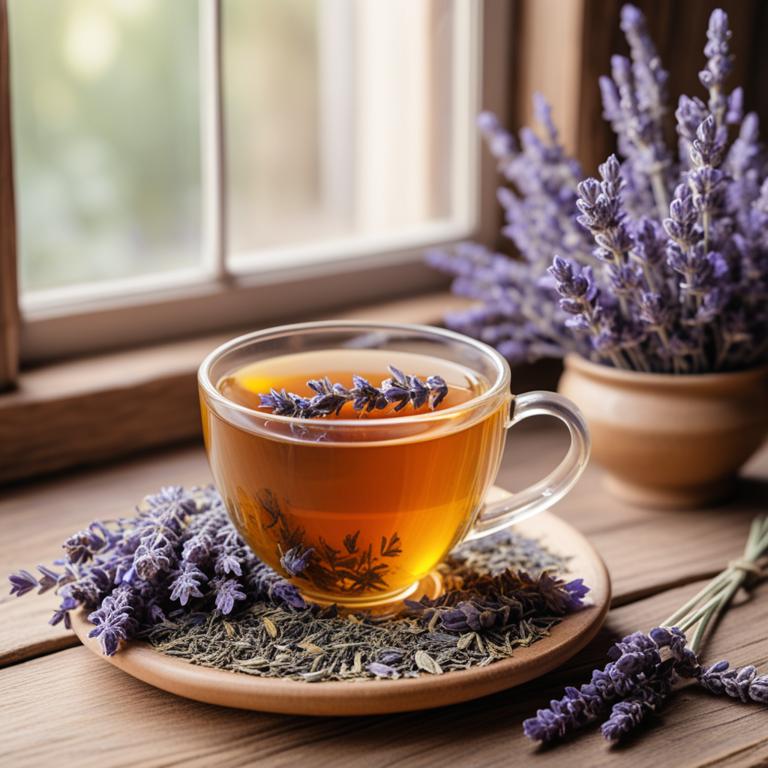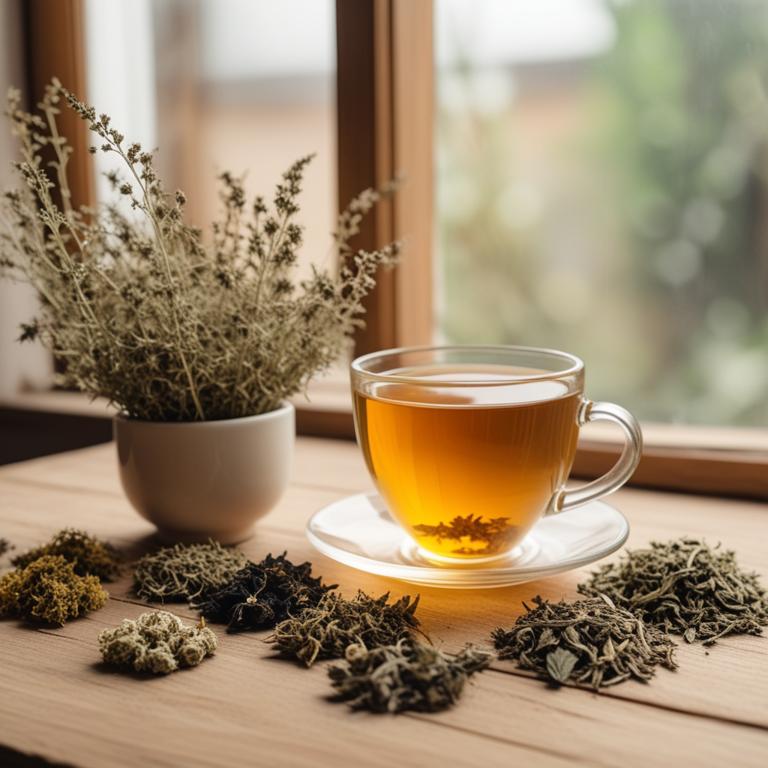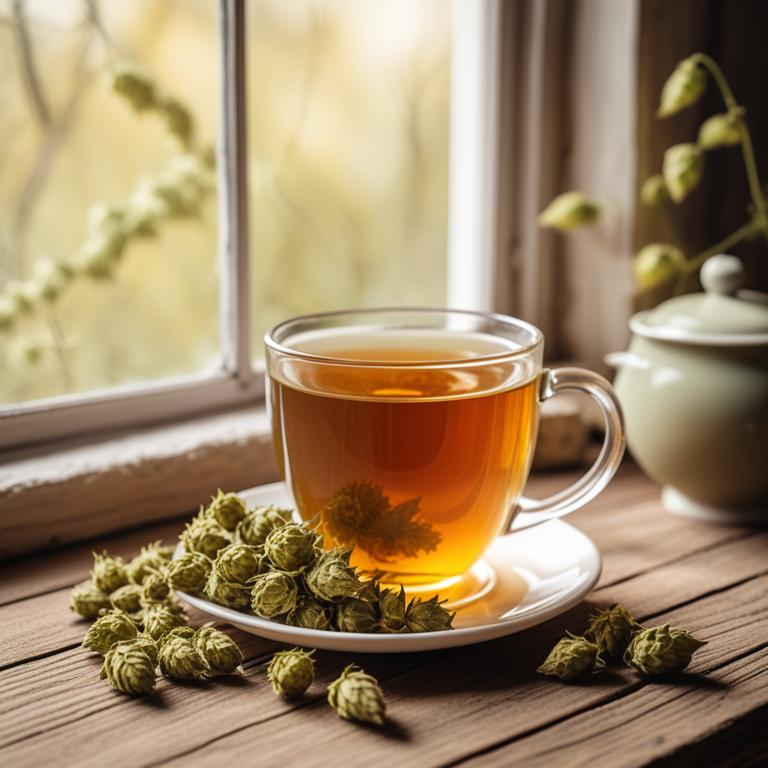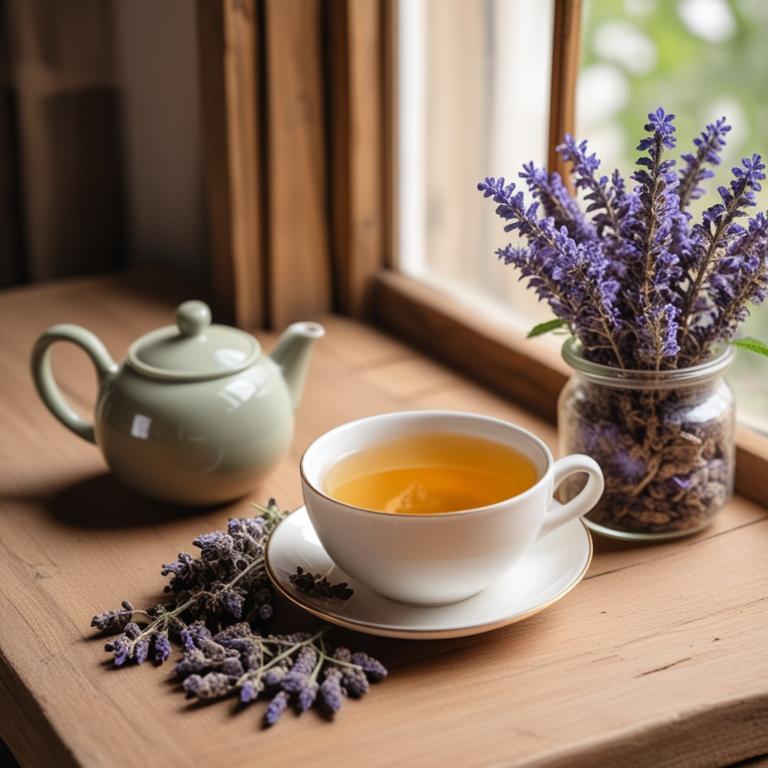9 Best Herbal Teas For Hot Flashes

Herbal teas for hot flashes are a natural remedy that refers to teas made from various herbs and plants used to alleviate the symptoms of hot flashes, a common menopausal symptom characterized by sudden feelings of heat and sweating.
The benefits of using herbal teas to treat hot flashes include reducing the frequency and intensity of hot flashes, improving sleep quality, and providing a sense of calm and relaxation.
Examples of herbal teas that have been used to treat hot flashes include peppermint tea, which helps to cool the body and reduce sweating, chamomile tea, which promotes relaxation and reduces anxiety, and black cohosh tea, which has been shown to reduce the frequency and severity of hot flashes.
Other herbal teas that have been used to treat hot flashes include red clover tea, which is high in isoflavones that can help to reduce hot flashes, and dandelion tea, which acts as a diuretic to help reduce water retention and alleviate hot flashes.
According to the Journal of Women's Health (2002), teas for hot flashes may be an appealing natural treatment option, but the evidence suggests that black cohosh, a commonly used botanical, is safe and effective for reducing menopausal symptoms, primarily hot flashes.
Below there's a list of the 9 best herbal teas for hot flashes.
- 1. Cimicifuga racemosa teas
- 2. Zingiber officinale teas
- 3. Humulus lupulus teas
- 4. Curcuma longa teas
- 5. Glycyrrhiza glabra teas
- 6. Vitex agnus-castus teas
- 7. Valeriana officinalis teas
- 8. Rosmarinus officinalis teas
- 9. Lavandula angustifolia teas
Also you may be interested in...
TODAY'S FREE BOUNDLE
Herb Drying Checklist + Herbal Tea Shopping List + Medicinal Herbs Flashcards
Enter you best email address below to receive this bundle (3 product valued $19.95) for FREE + exclusive access to The Aphotecary Letter.
$19.95 -> $0.00
1. Cimicifuga racemosa teas

Cimicifuga racemosa teas, also known as black cohosh teas, have been used for centuries to treat hot flashes in menopausal women.
The bioactive constituents, including isoflavones and triterpene glycosides, help to alleviate hot flashes by exerting a positive effect on the hormonal balance and reducing the severity of symptoms.
The herbal preparation's anti-inflammatory and antioxidant properties also contribute to its effectiveness in treating hot flashes, by reducing the body's sensitivity to temperature fluctuations and promoting relaxation.
Regular consumption of Cimicifuga racemosa teas has been shown to provide numerous benefits, including improved sleep quality, reduced anxiety, and a decrease in the frequency and severity of hot flashes.
Related Study
According to "Electronic physician", Cimicifuga racemosa teas for hot flashes were found to be effective in the treatment of acute menopausal syndrome.
2. Zingiber officinale teas

Zingiber officinale teas, also known as ginger tea, have been traditionally used to treat hot flashes in women, particularly those undergoing menopause.
The bioactive constituents of ginger tea, including gingerols and shogaols, possess anti-inflammatory and antioxidant properties that help to alleviate the symptoms of hot flashes by reducing inflammation and promoting relaxation.
The properties of ginger tea that help to treat hot flashes include its ability to regulate body temperature, improve circulation, and reduce stress levels.
The benefits of using ginger tea to treat hot flashes include its natural and non-invasive approach, which can lead to improved sleep quality, reduced anxiety, and a general sense of well-being.
3. Humulus lupulus teas

Humulus lupulus teas, also known as hop teas, have been used as a natural remedy to alleviate hot flashes in menopausal women.
The properties of this herbal preparation help to treat hot flashes by regulating hormonal balance, reducing inflammation, and promoting relaxation.
The bioactive constituents of Humulus lupulus teas, including flavonoids and essential oils, such as linalool and humulone, help to calm the nervous system and reduce the frequency and severity of hot flashes.
The benefits of using Humulus lupulus teas to treat hot flashes include reduced frequency and severity of symptoms, improved sleep quality, and a natural, non-hormonal approach to managing menopausal symptoms.
4. Curcuma longa teas

Curcuma longa teas have been traditionally used to treat hot flashes, a common symptom of menopause, due to their potent anti-inflammatory and antioxidant properties.
The bioactive constituents of Curcuma longa, including curcumin, turmerone, and ar-turmerone, help to reduce inflammation and modulate the body's hormonal balance, thereby alleviating hot flashes.
By regulating the body's thermoregulatory mechanisms and improving sleep quality, Curcuma longa teas can help to mitigate the frequency and severity of hot flashes.
The benefits of using Curcuma longa teas to treat hot flashes include reduced symptoms, improved quality of life, and a lower risk of associated health complications.
Related Study
According to "Journal of pharmacopuncture", Curcuma longa teas for hot flashes may be beneficial due to curcumin's anti-inflammatory and analgesic properties which are also effective in treating mastalgia, a condition associated with breast pain.
5. Glycyrrhiza glabra teas

Glycyrrhiza glabra teas, a herbal preparation derived from the licorice root, have been traditionally used to treat hot flashes in women.
The anti-inflammatory and antioxidant properties of this tea help to alleviate the symptoms of hot flashes, such as sudden bursts of heat and sweating.
The bioactive constituents of Glycyrrhiza glabra, including glycyrrhizin and flavonoids, have been shown to help regulate hormonal imbalances and reduce the severity of hot flashes.
By consuming Glycyrrhiza glabra teas, women may experience relief from hot flashes and other menopausal symptoms, reducing the risk of associated health problems and improving overall well-being.
Related Study
According to the "Electronic physician", Glycyrrhiza glabra teas for hot flashes may be effective as part of the treatment options for acute menopausal syndrome, including hot flashes, due to its various mechanisms of action.
6. Vitex agnus-castus teas

Vitex agnus-castus teas have been traditionally used to treat hot flashes, a common symptom of menopause, due to its properties that help to regulate hormonal balance and reduce symptoms of menopausal distress.
The herbal preparation works by acting on the hypothalamic-pituitary-gonadal axis, thereby modulating the levels of estrogen and progesterone, which helps to alleviate hot flashes.
The bioactive constituents of Vitex agnus-castus teas, including flavonoids, phenolic acids, and iridoid glycosides, are responsible for its therapeutic effects.
The benefits of using Vitex agnus-castus teas to treat hot flashes include reduced frequency and severity of hot flashes, improved sleep quality, and enhanced overall well-being.
Related Study
According to "Electronic physician", Vitex agnus-castus teas for hot flashes were found to be effective in the treatment of acute menopausal syndrome.
7. Valeriana officinalis teas

Valeriana officinalis teas have been traditionally used to treat hot flashes in women due to their sedative, anxiolytic, and anti-inflammatory properties.
These properties help to reduce the frequency and severity of hot flashes by calming the nervous system and alleviating stress and anxiety, which are often triggers for hot flashes.
The bioactive constituents of Valeriana officinalis teas, including valerenic acid and isovalerenic acid, contribute to their therapeutic effects by modulating the activity of neurotransmitters and hormones, such as estrogen, that are involved in hot flashes.
The benefits of using Valeriana officinalis teas to treat hot flashes include improved sleep quality, reduced symptoms of hot flashes, and a decrease in the overall menopausal symptoms.
Related Study
According to "Electronic physician", Valeriana officinalis teas for hot flashes were found to be effective in the treatment of acute menopausal syndrome.
8. Rosmarinus officinalis teas

Rosmarinus officinalis teas, derived from the leaves of the rosemary plant, have been traditionally used to alleviate hot flashes in menopausal women.
The properties of this herbal preparation help to treat this ailment by reducing the frequency and severity of hot flashes due to its estrogenic and anti-inflammatory effects.
The bioactive constituents of Rosmarinus officinalis, including carnosic acid and ursolic acid, have been identified as key compounds that contribute to its therapeutic benefits, modulating the body's hormonal balance and reducing inflammation.
By incorporating Rosmarinus officinalis teas into their routine, women can experience a range of benefits, including reduced hot flash episodes, improved sleep quality, and enhanced overall well-being.
9. Lavandula angustifolia teas

Lavandula angustifolia teas, derived from the flowers of the English lavender plant, have been traditionally used to treat hot flashes, a common symptom of menopause.
The anti-inflammatory and antioxidant properties of this herbal preparation help to alleviate the discomfort associated with hot flashes by reducing inflammation and oxidative stress.
The bioactive constituents, including linalool and linalyl acetate, play a crucial role in modulating the body's hormonal balance, thereby reducing the frequency and severity of hot flashes.
By consuming Lavandula angustifolia teas, women can experience significant relief from hot flashes, improved sleep quality, and reduced anxiety, making it a popular natural remedy for menopausal symptoms.